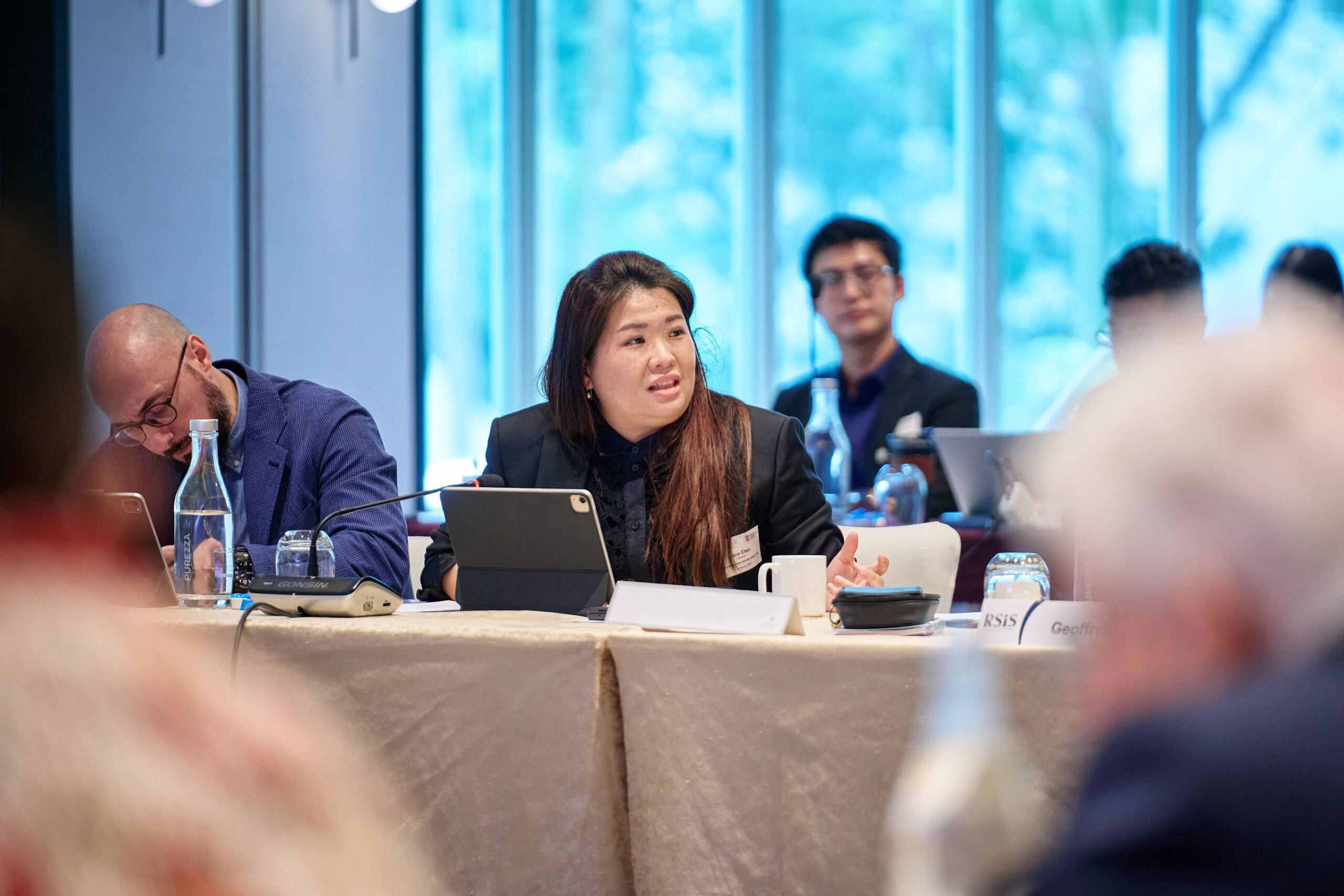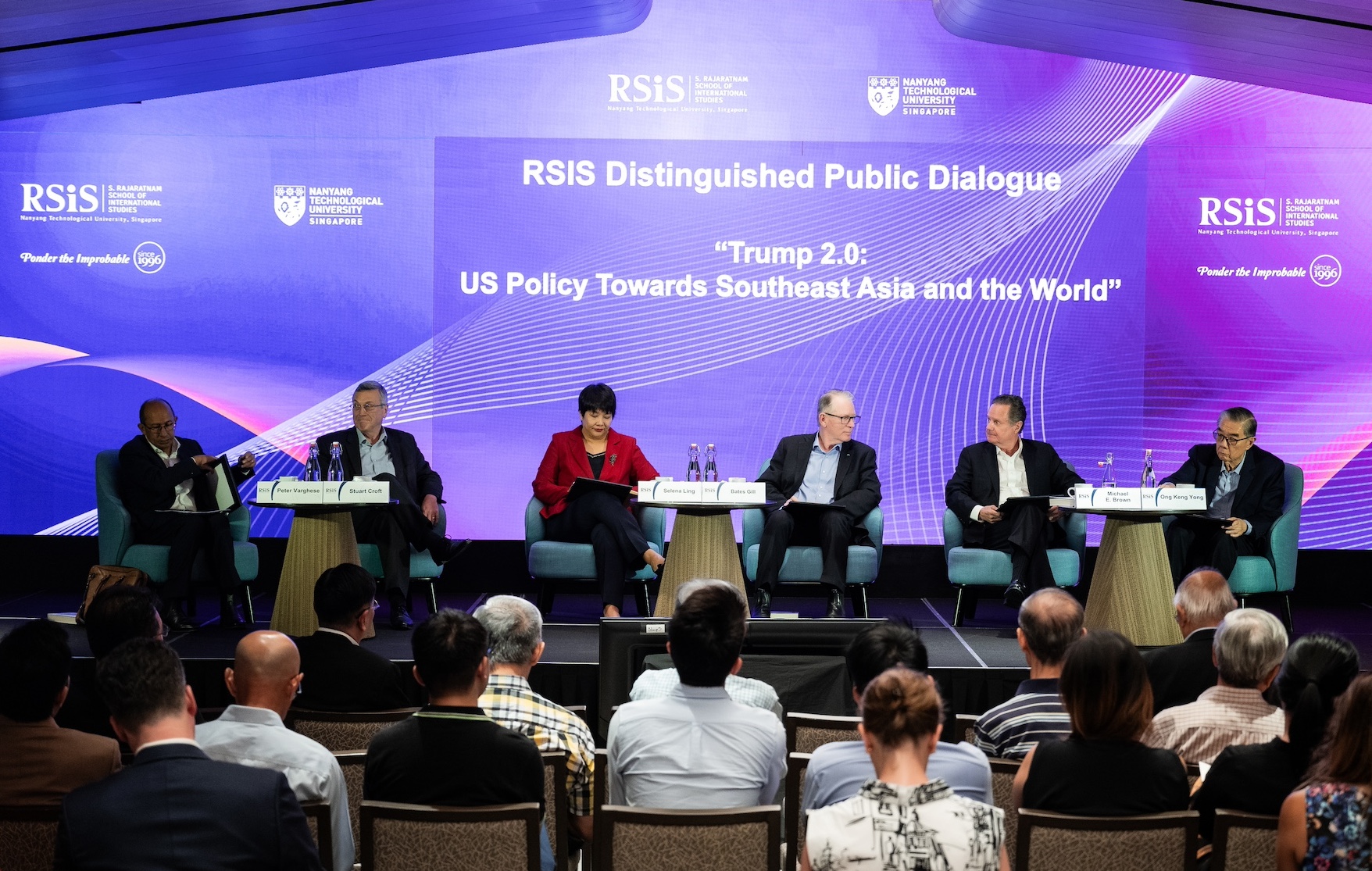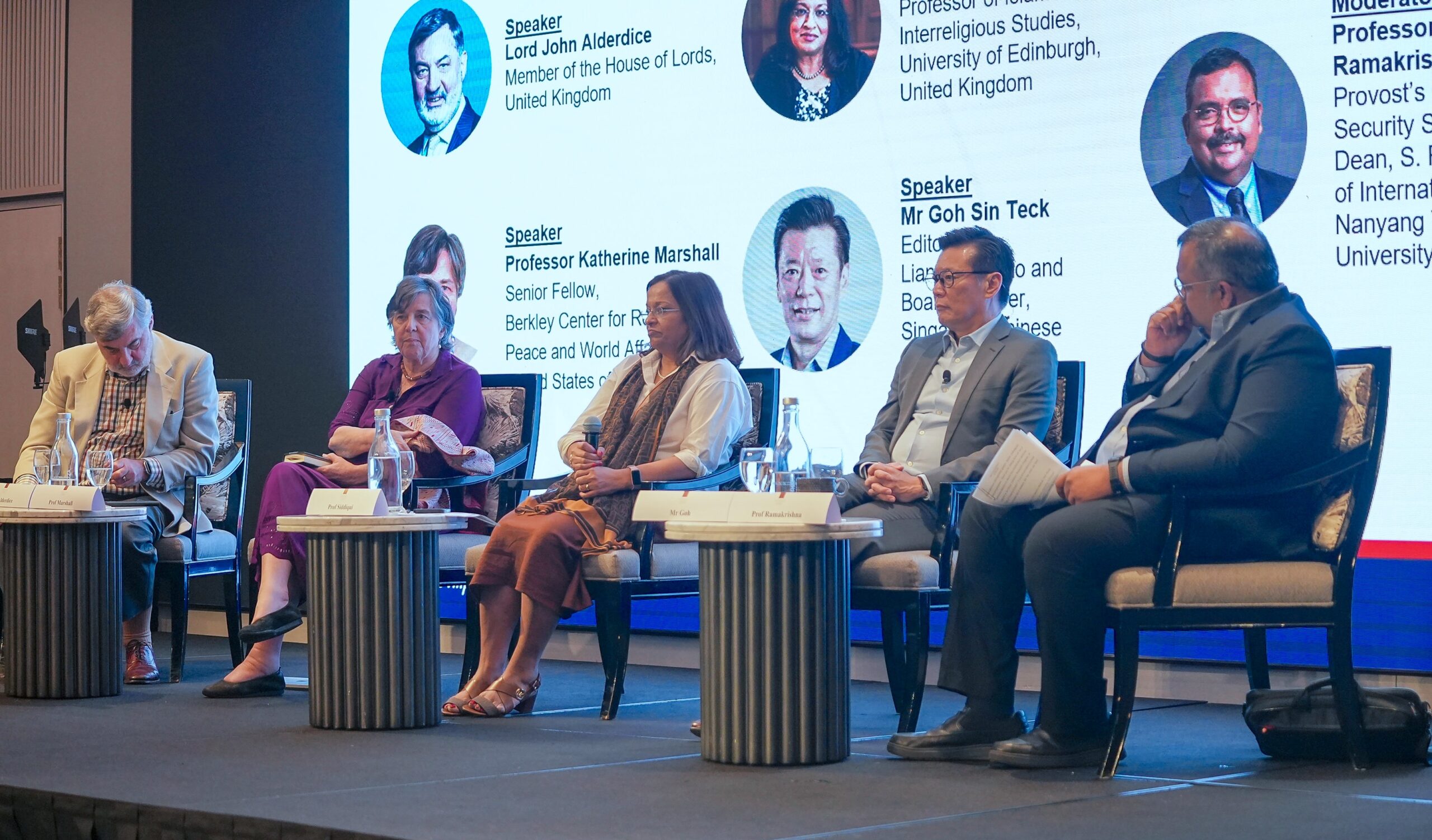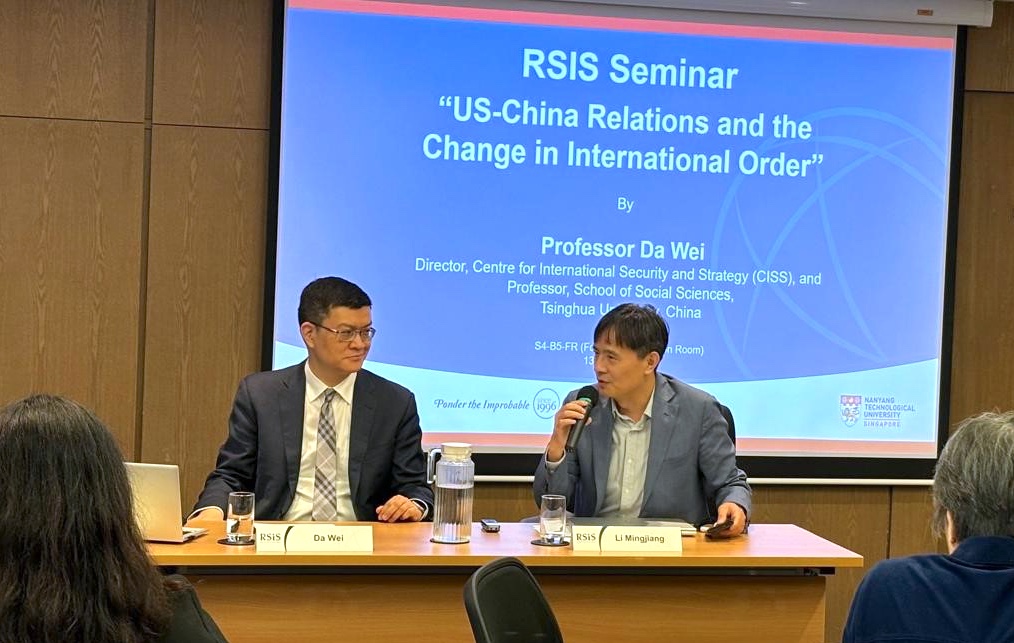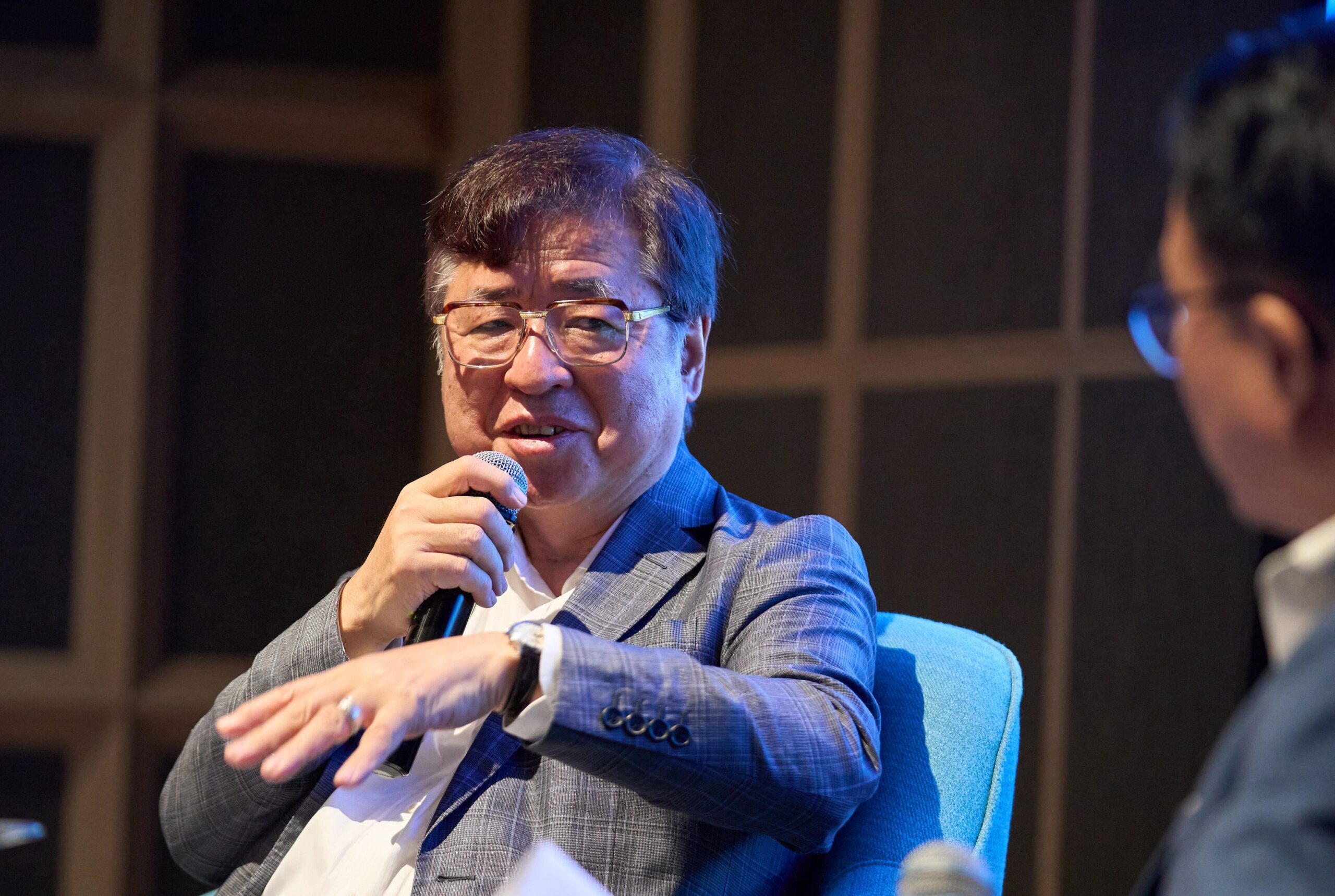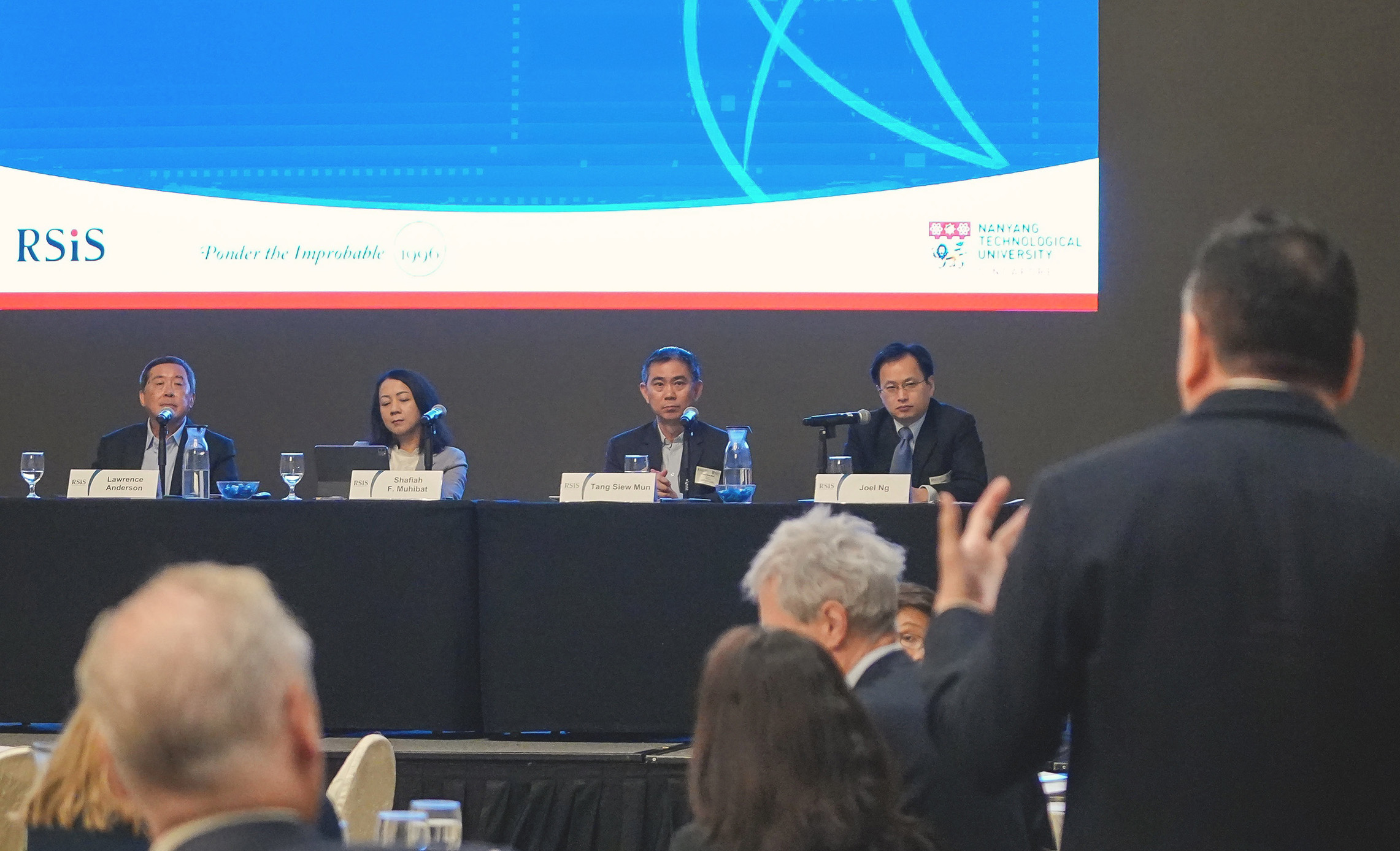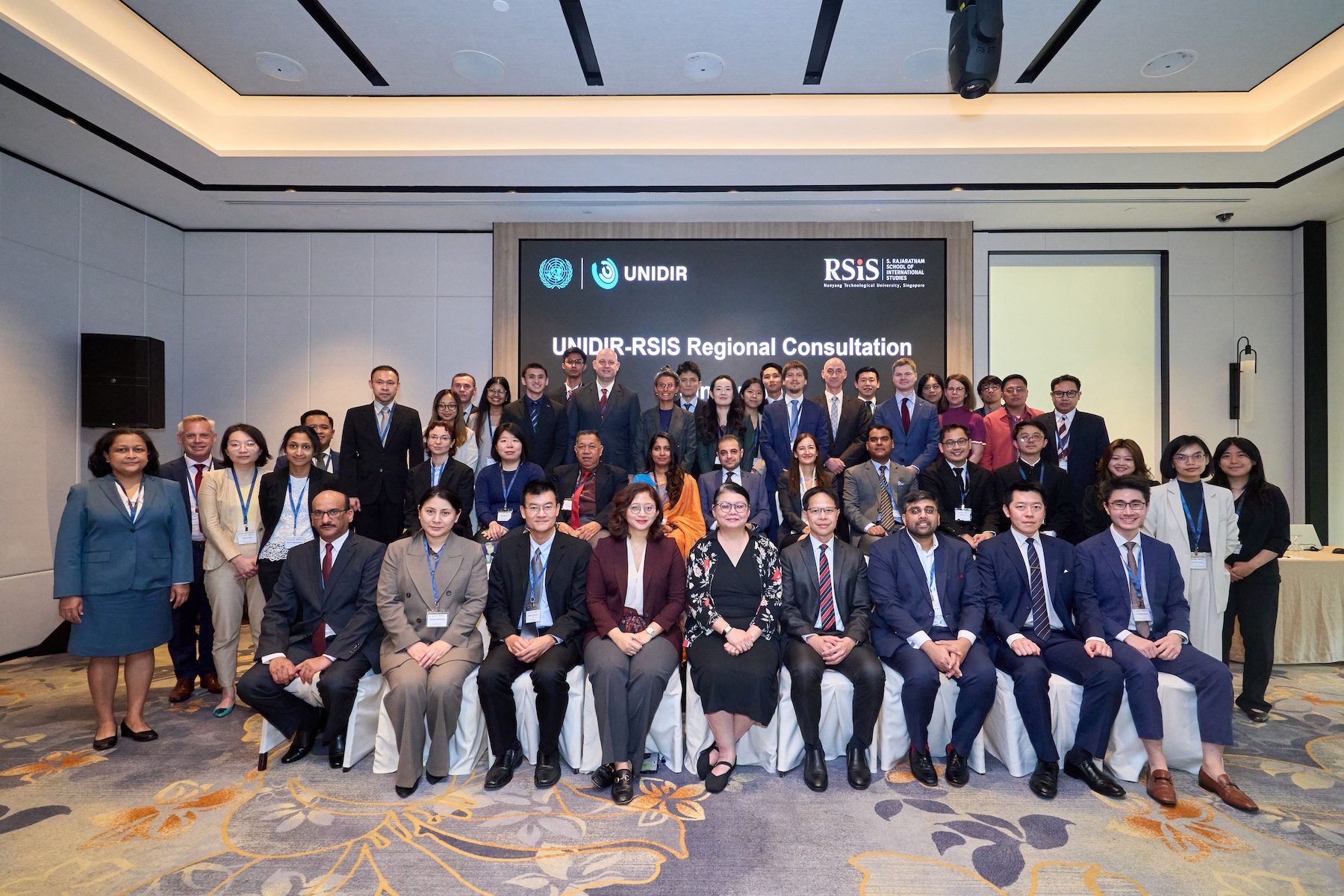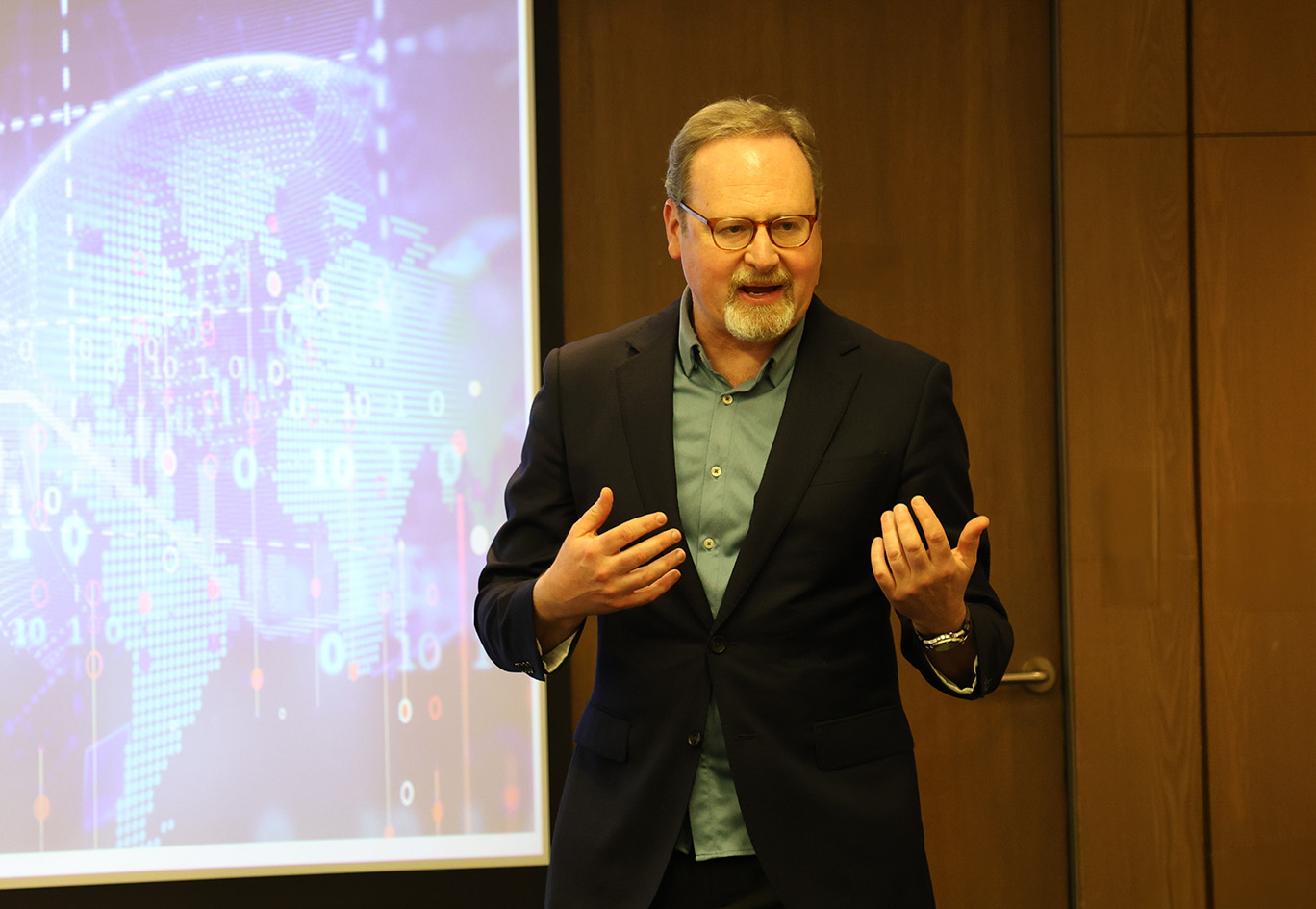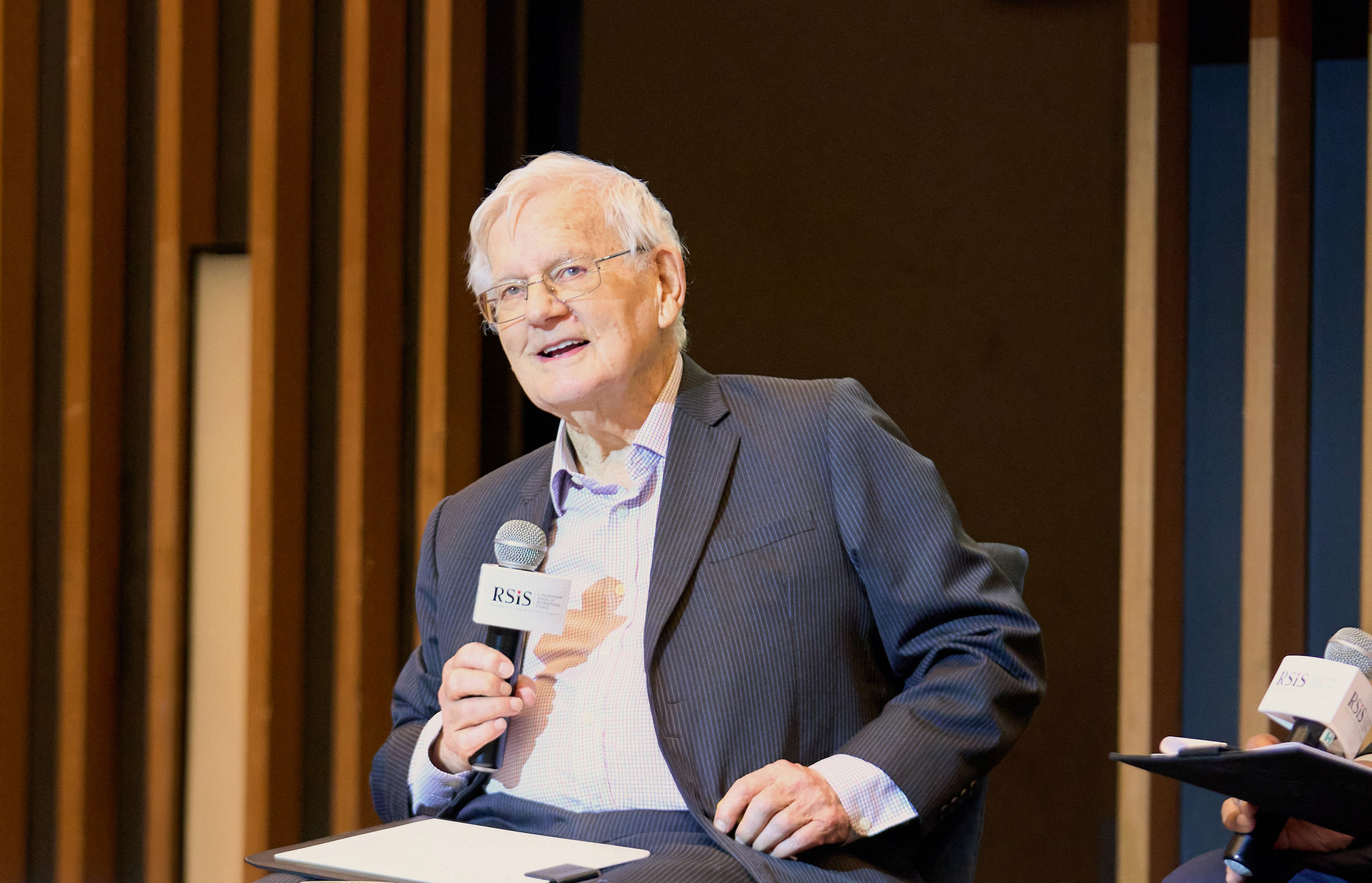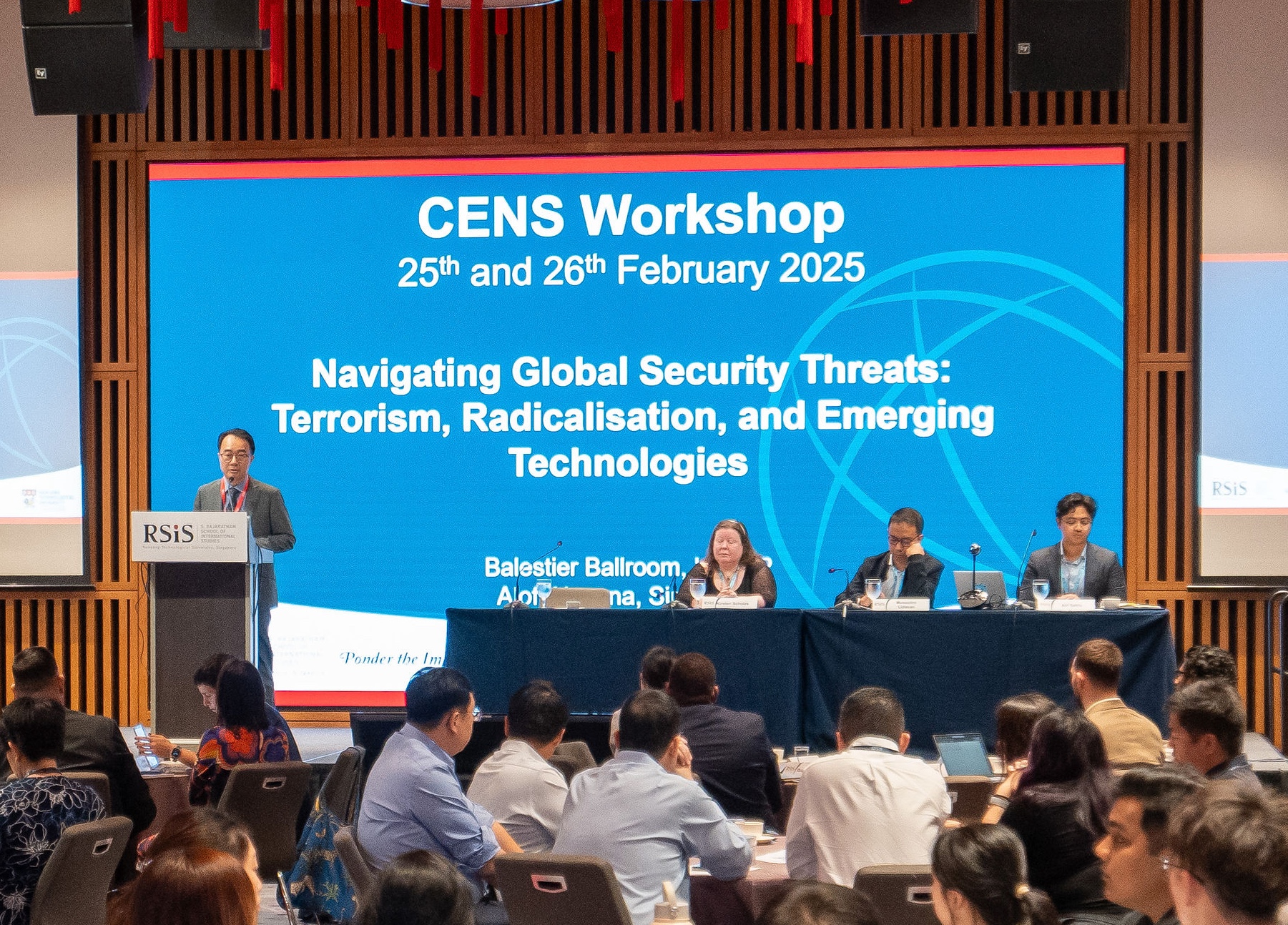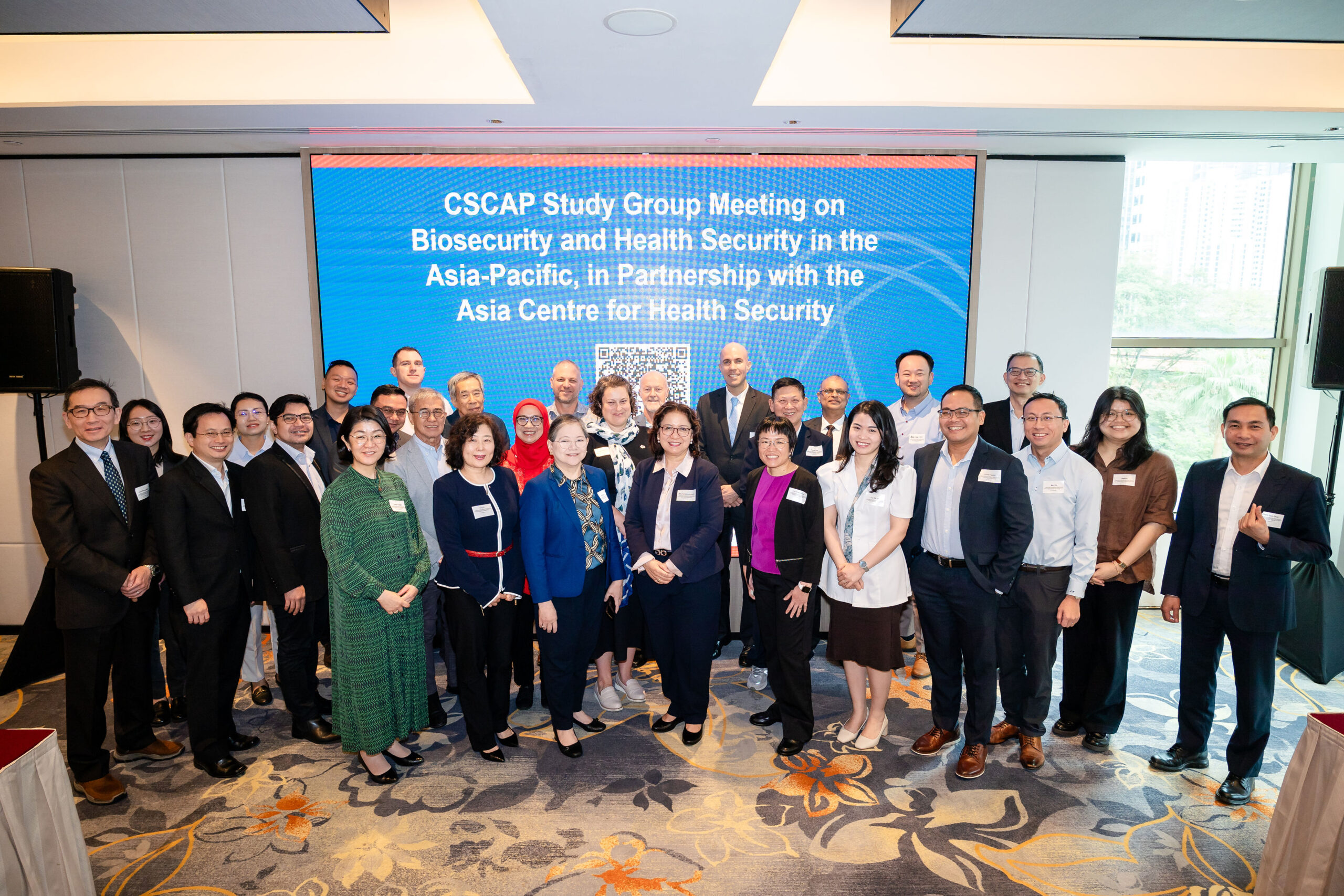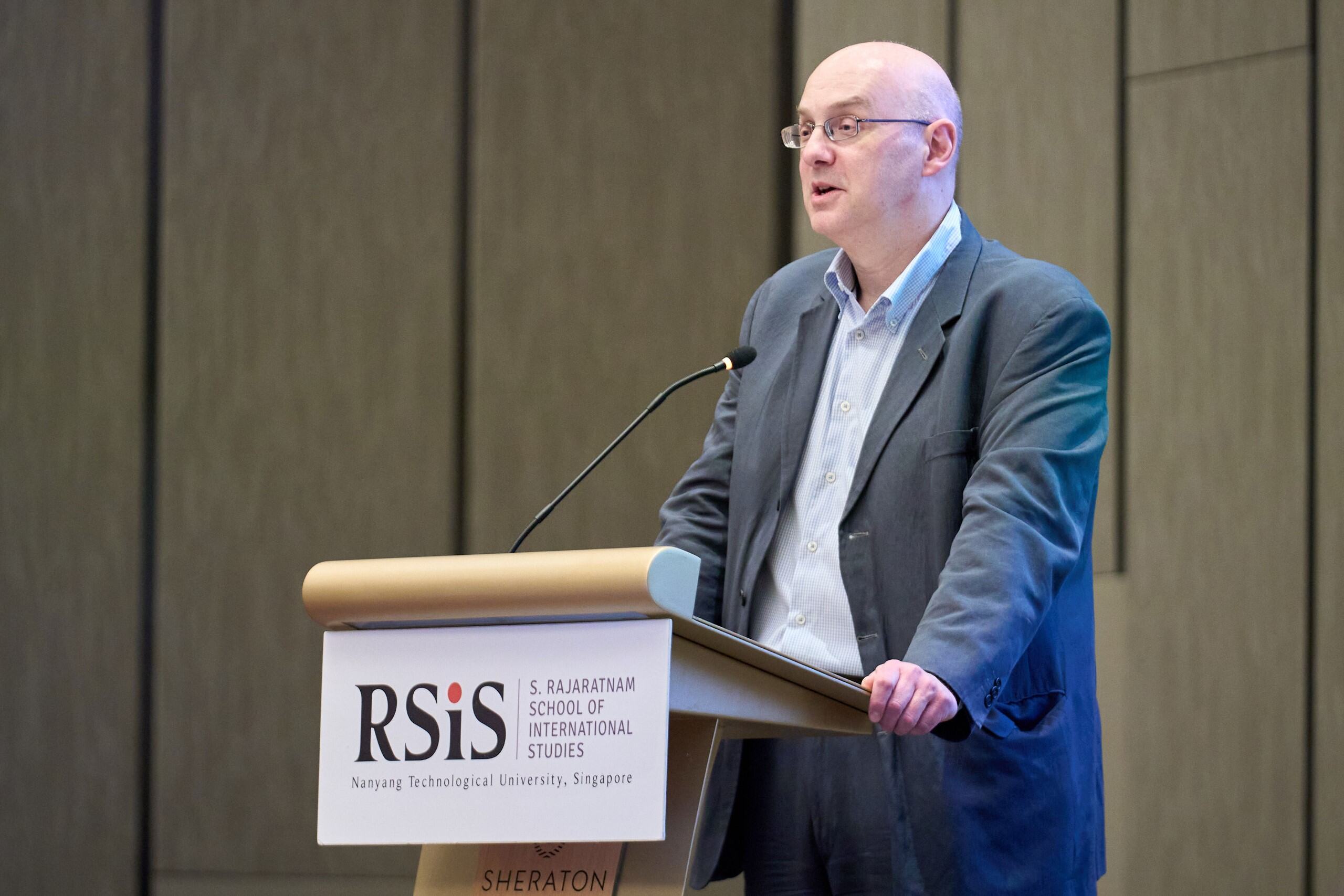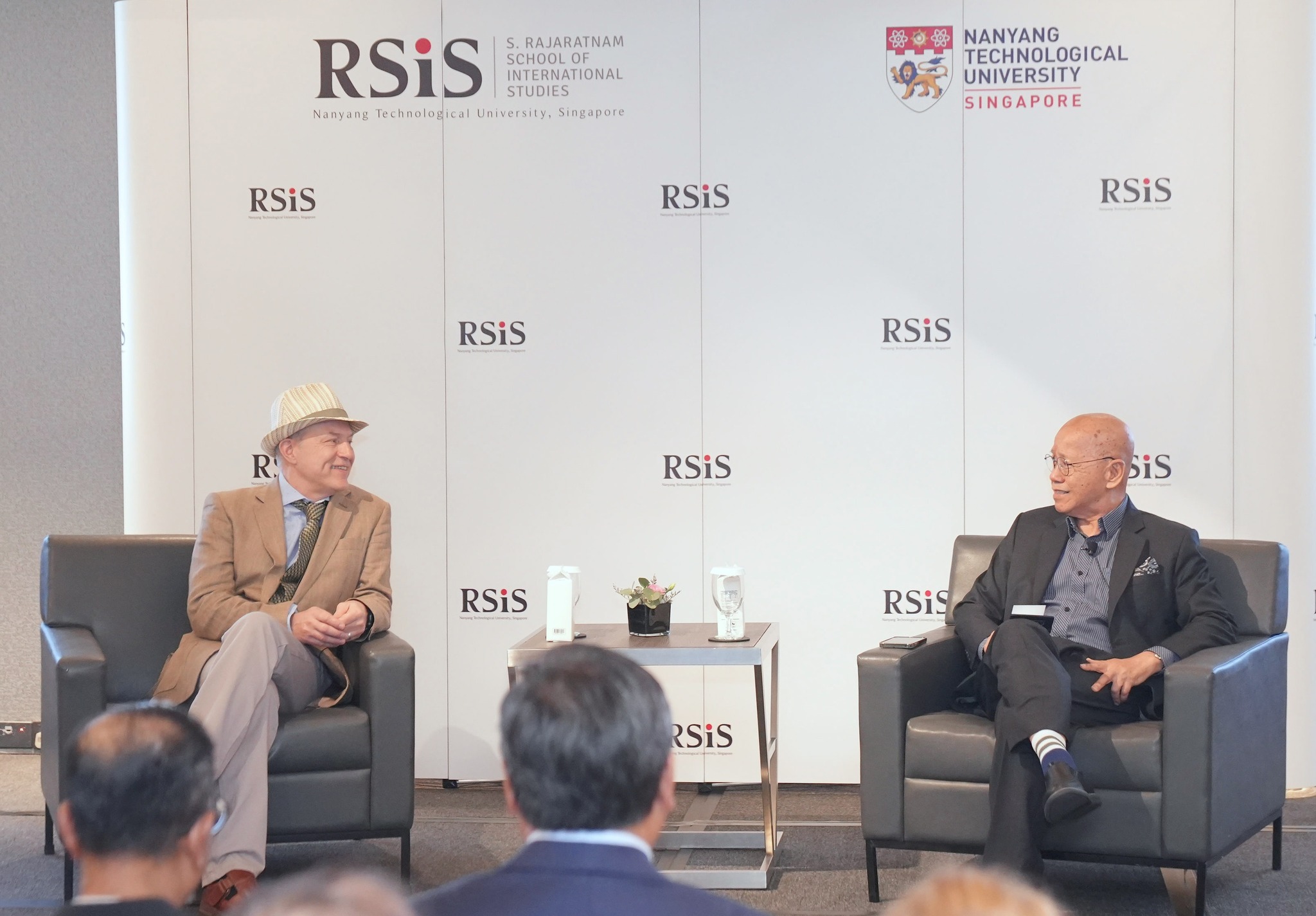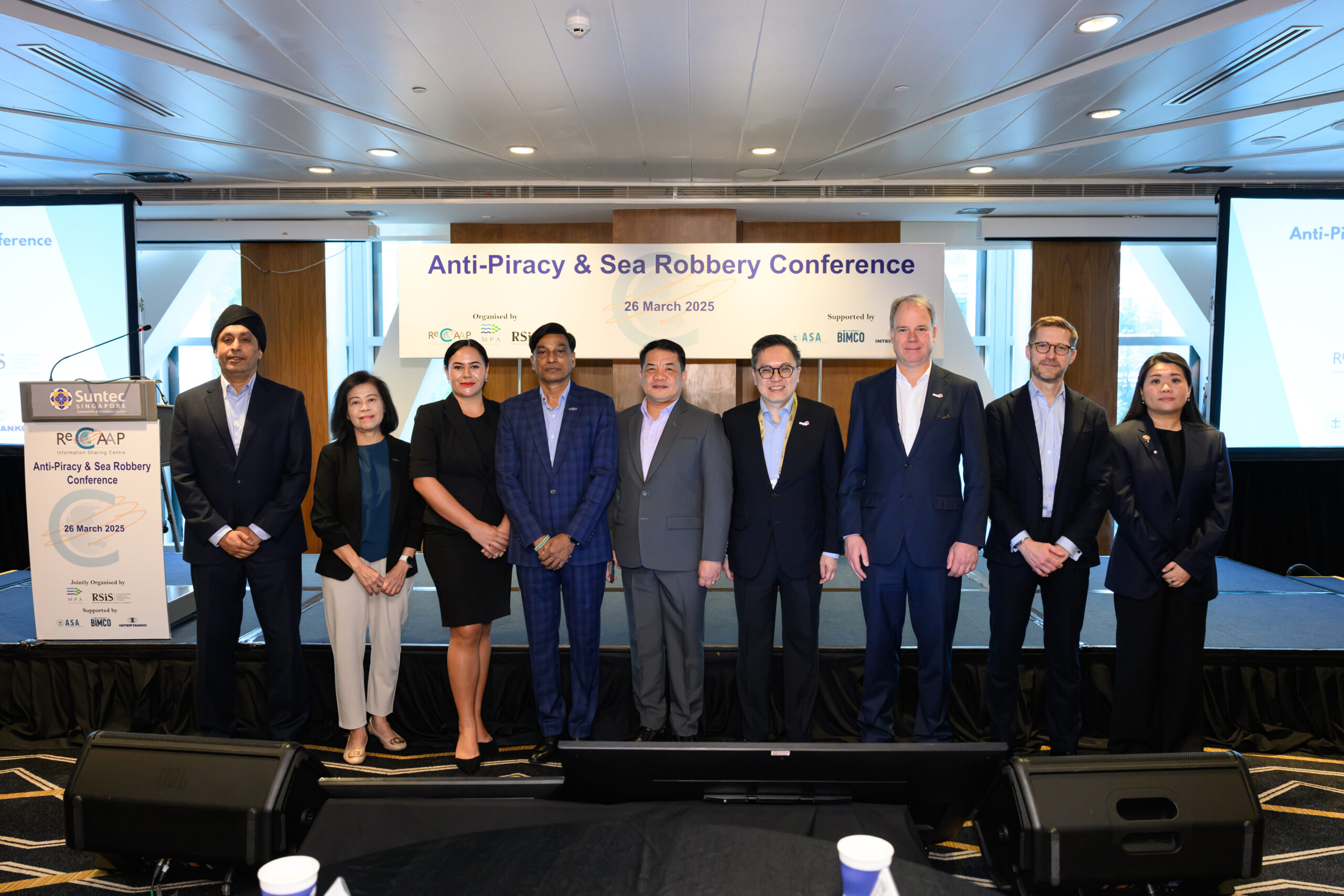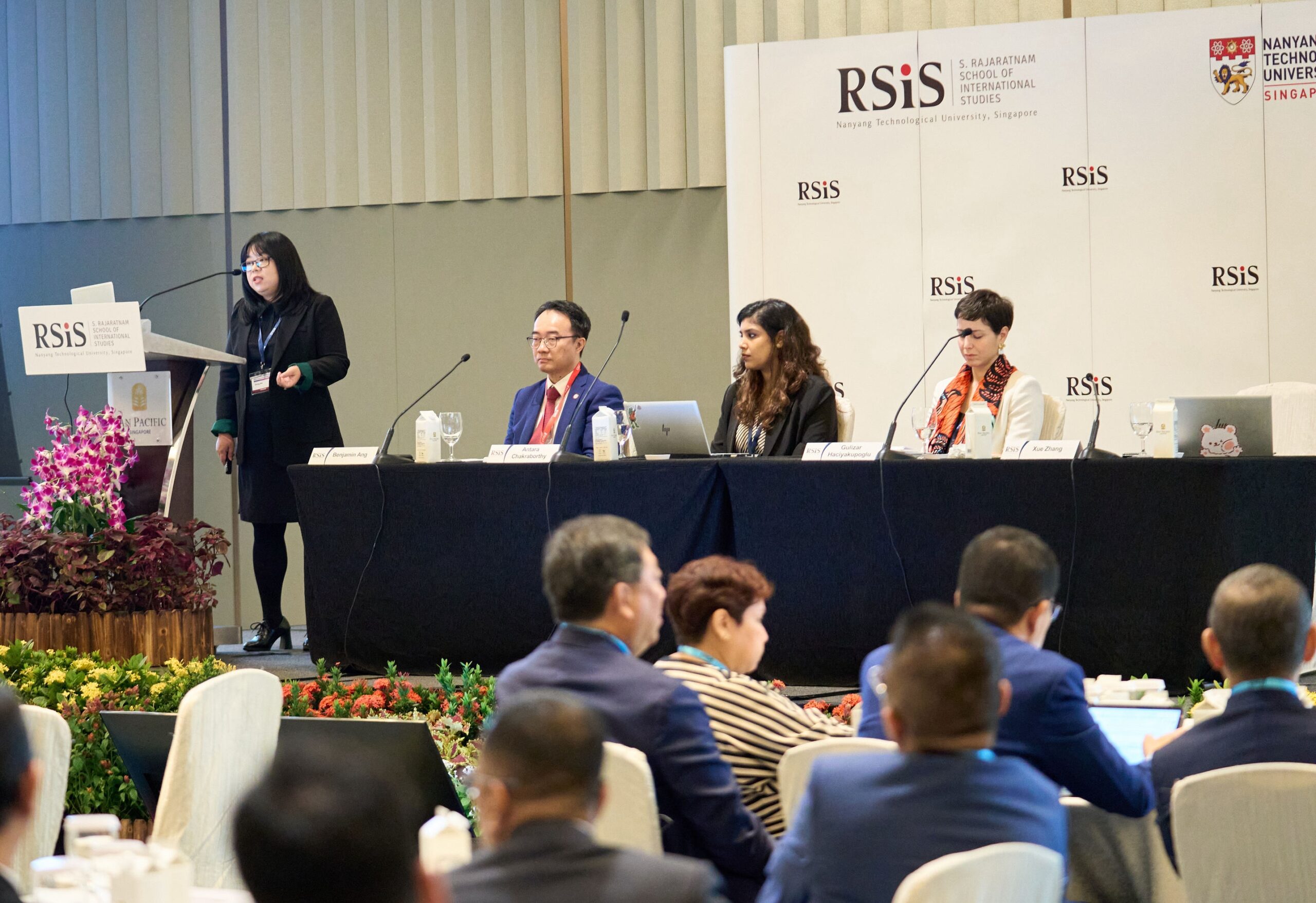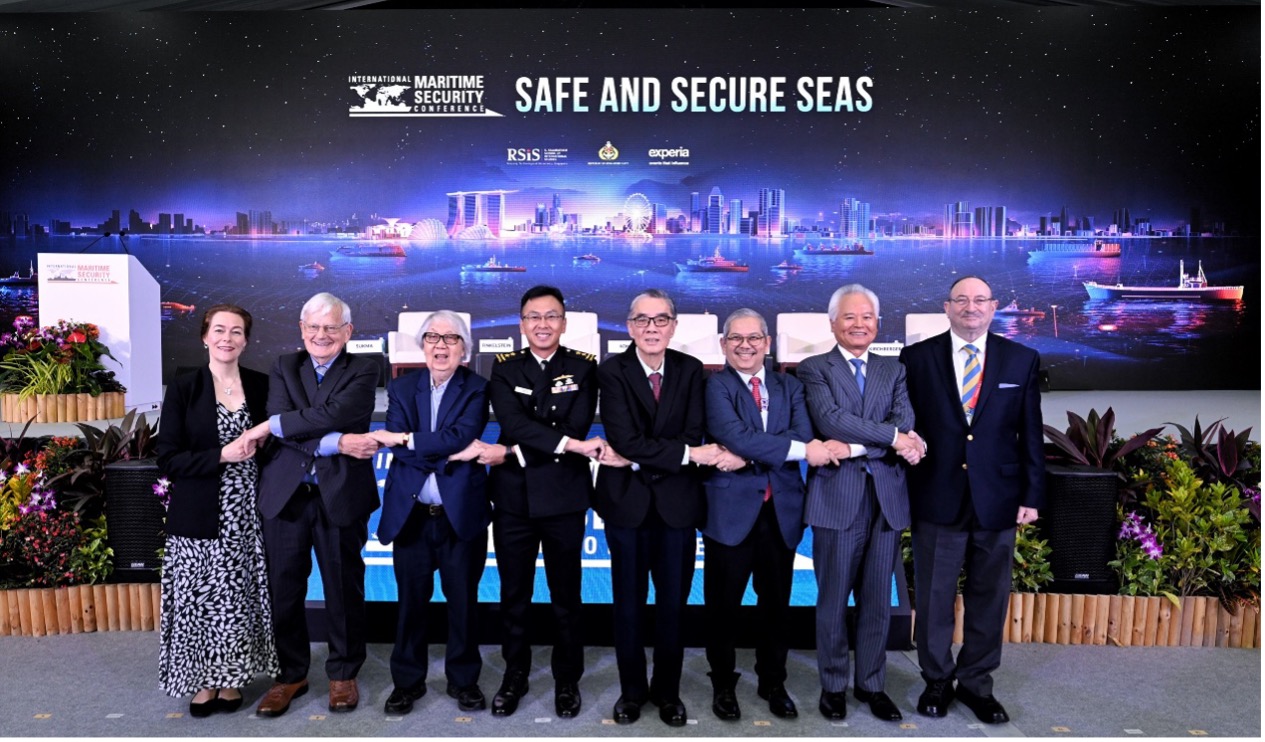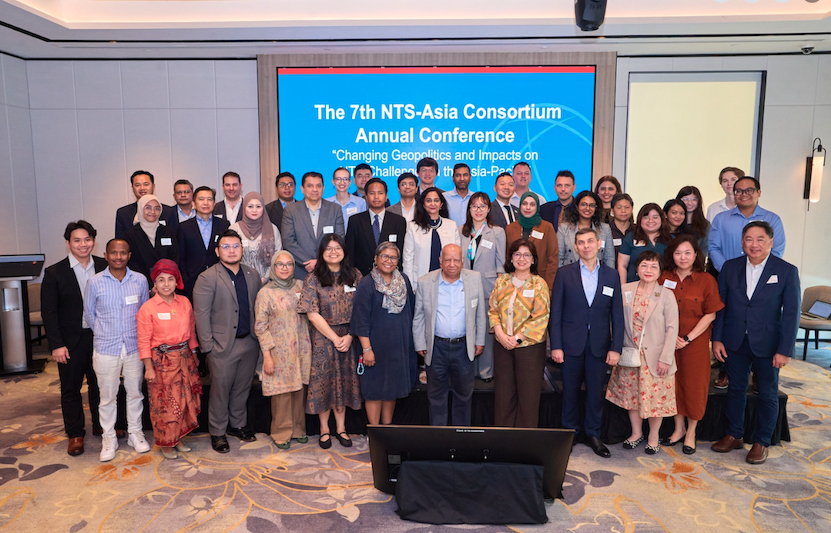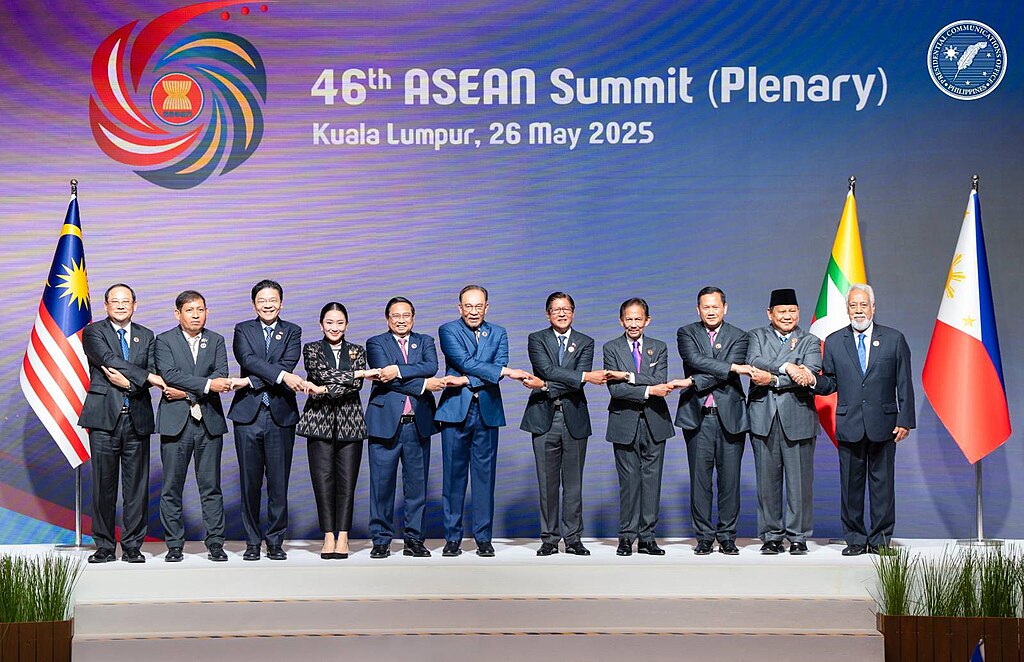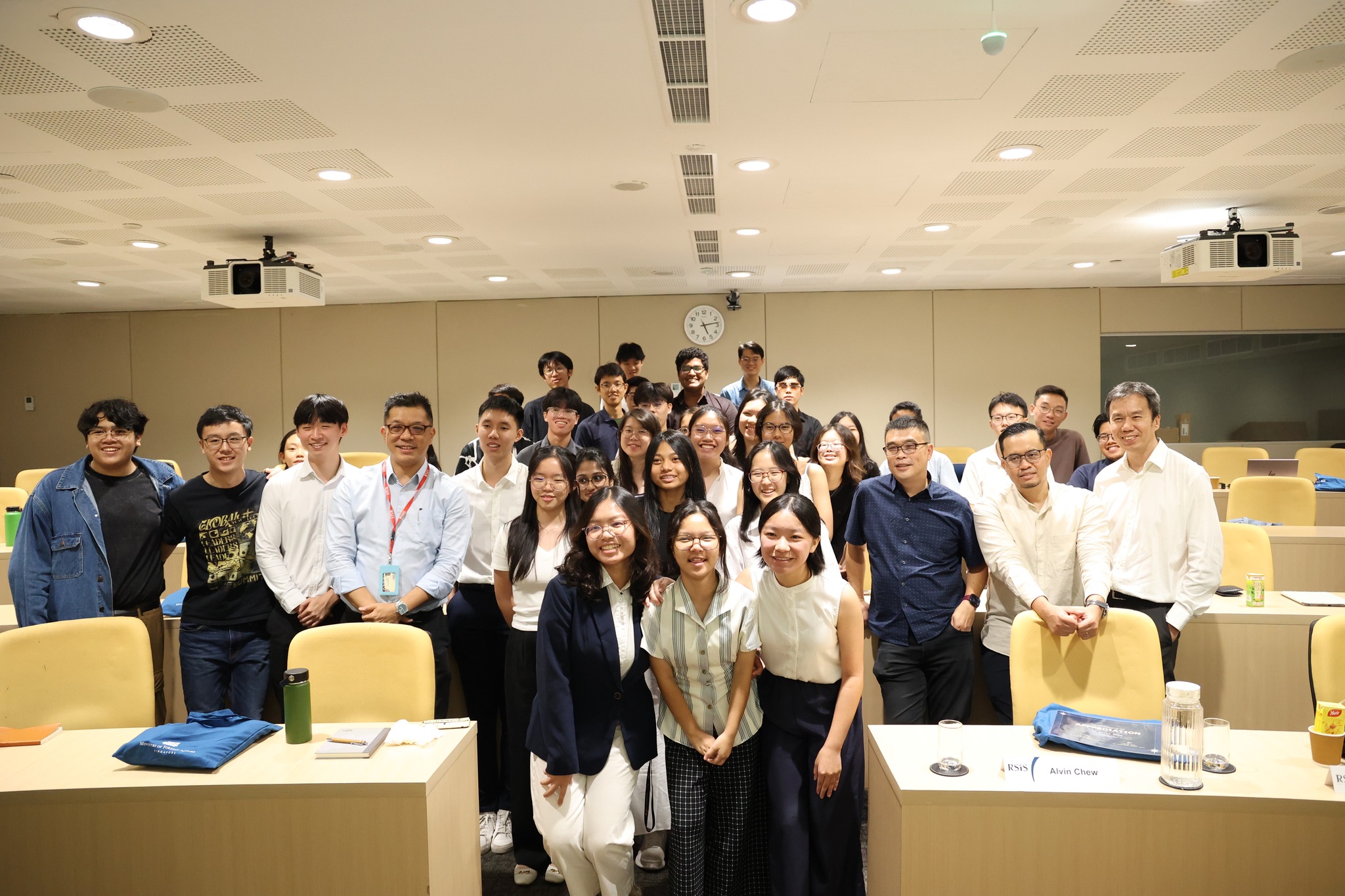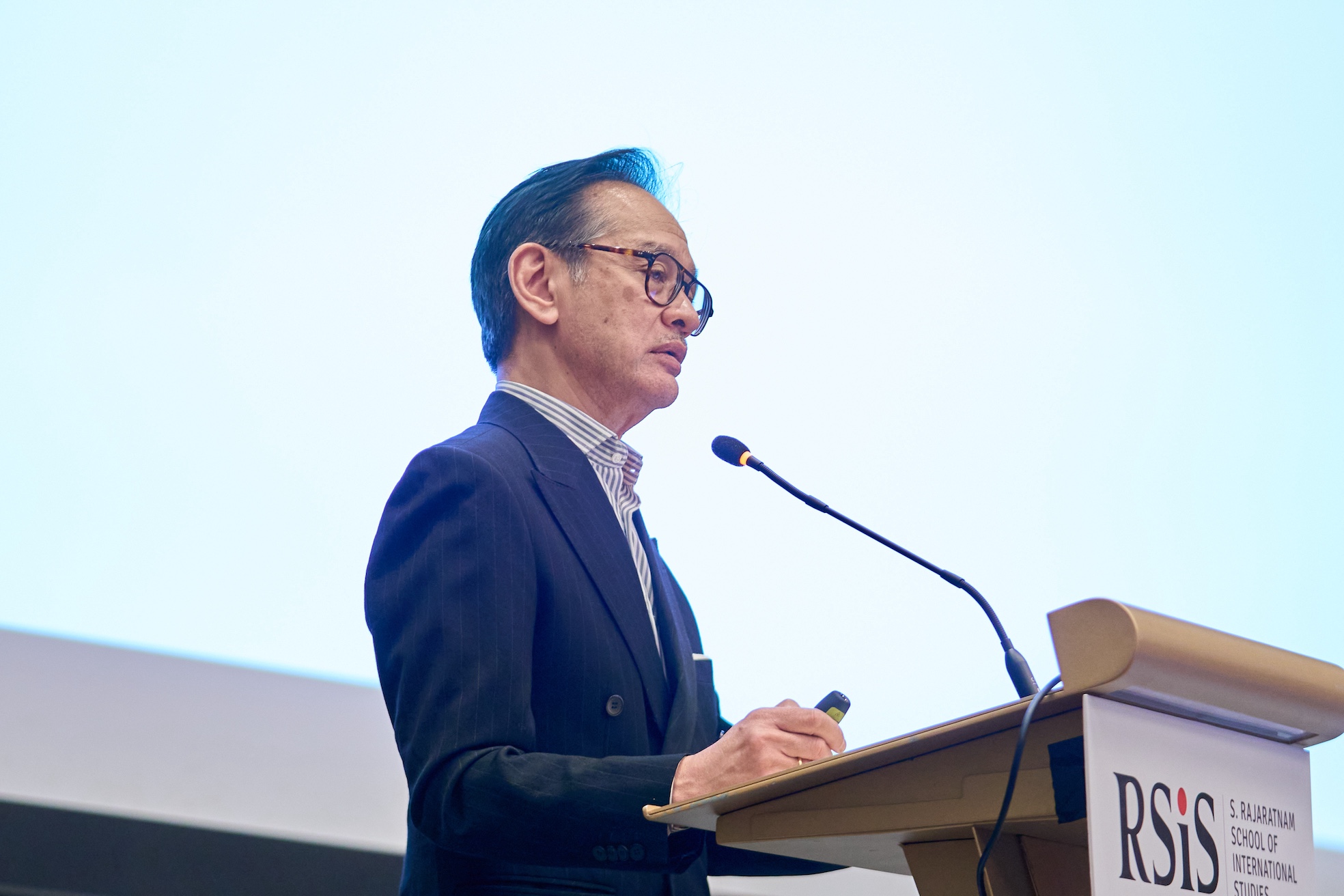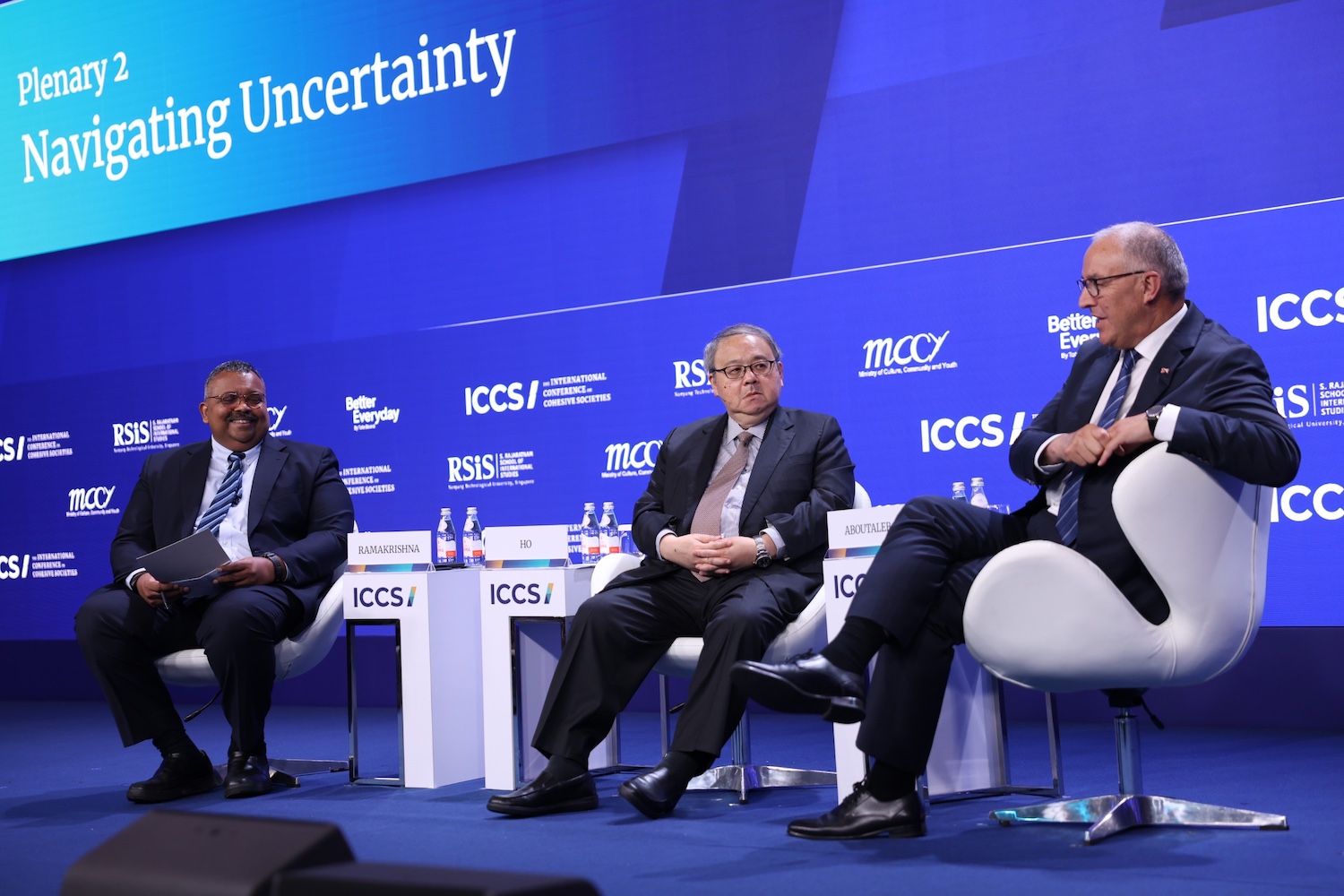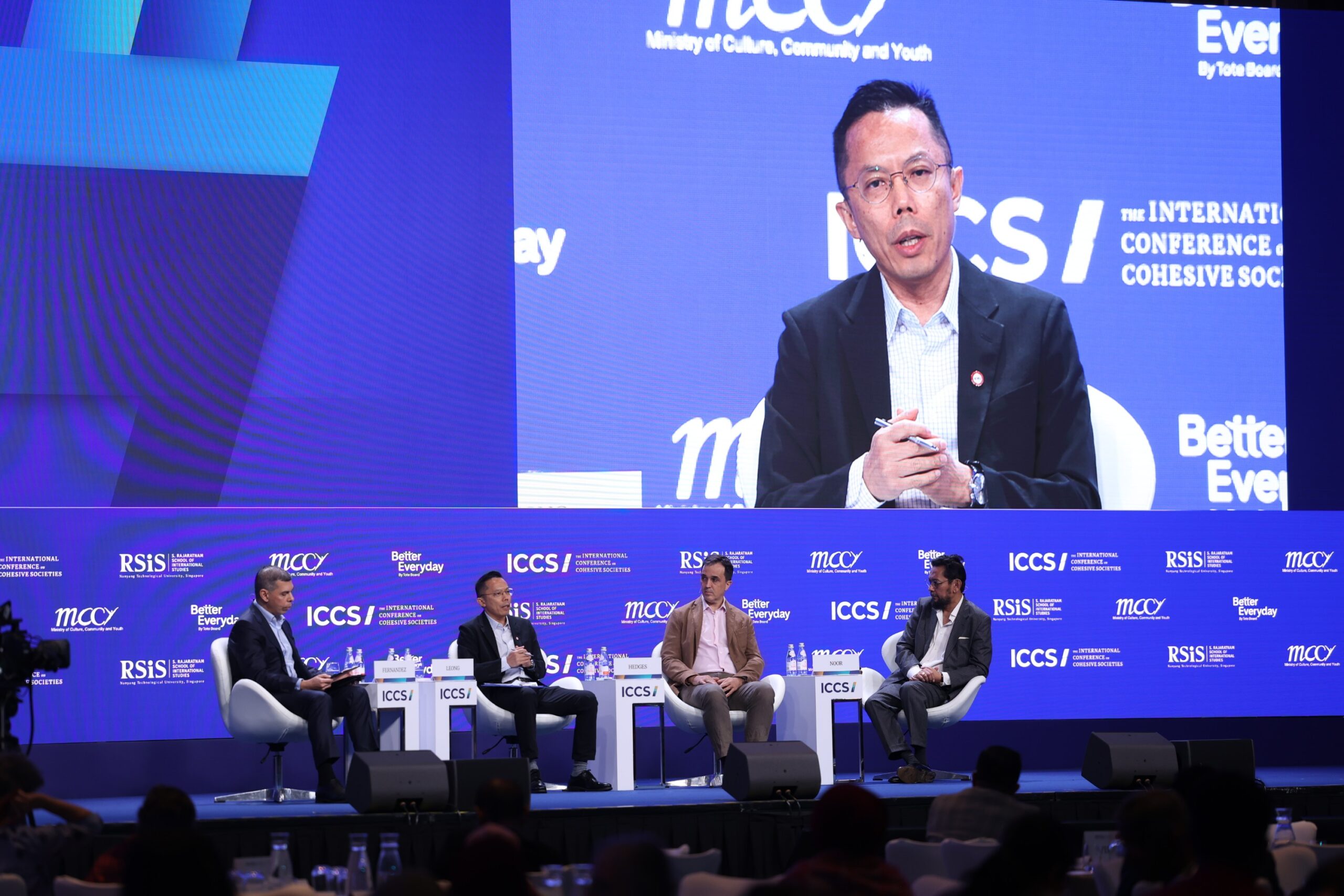
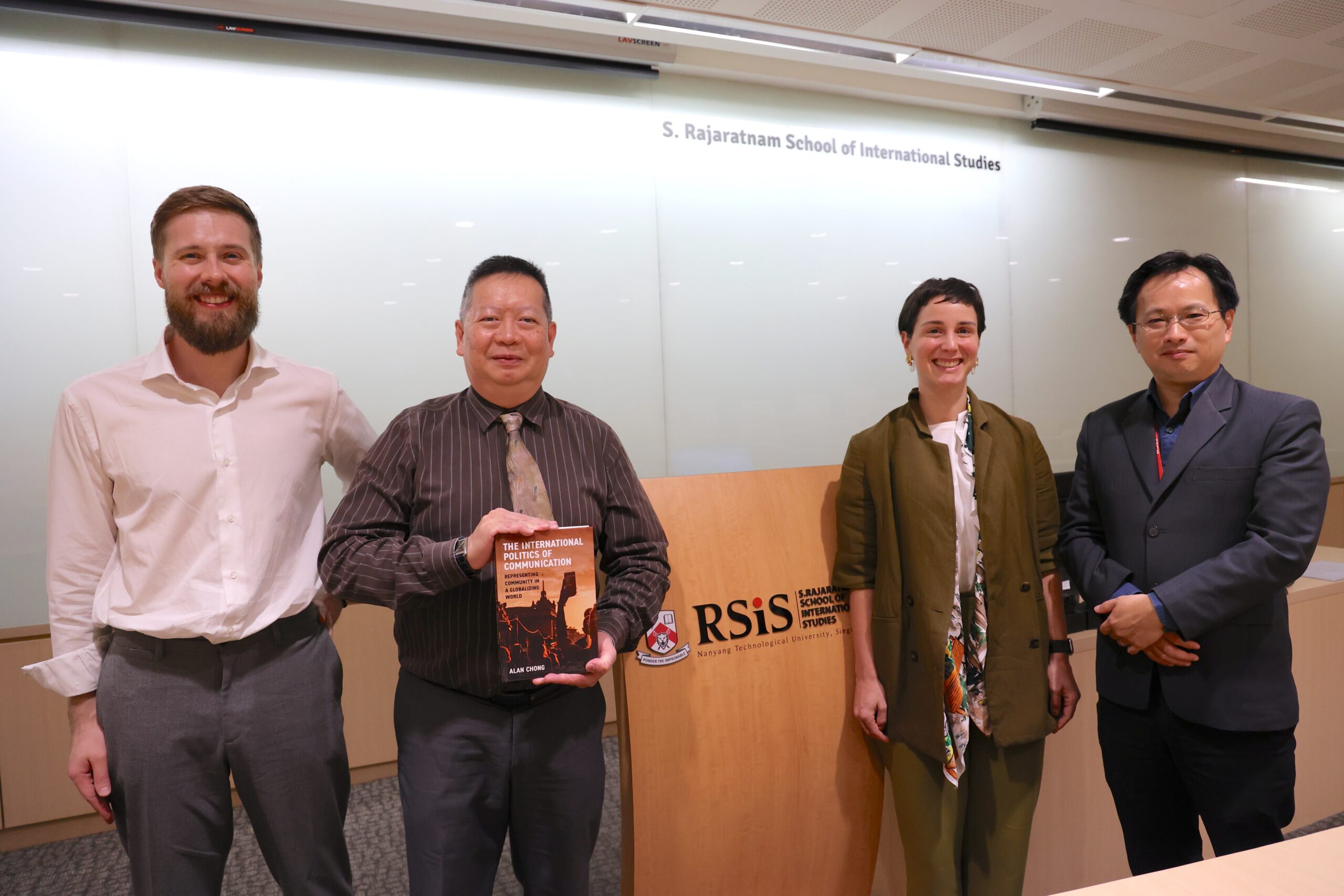
Dr Alan Chong, Senior Fellow at the Centre for Multilateralism Studies (CMS), RSIS, introduced his latest book at an RSIS book launch seminar on 12 June 2025. The book, titled “The International Politics of Communication: Representing Community in a Globalizing World”, examines the political nature of international communications. Dr Chong posits that politics is about competition — both in terms of discourses as well as models of social and political organisation. Competition concerns the politics of representation or politics of information. The book puts forth a policy-relevant message: it calls to interpret and unmask the international politics of communication, urging readers to apply critical reading of all texts and sights.
Discussants Patrick Quinton-Brown, Assistant Professor at the School of Social Sciences, Singapore Management University; and Dr Gulizar Haciyakupoglu, Senior Associate Fellow at the Centre of Excellence for National Security, RSIS; offered broadly positive reviews of the book. They highlighted the relevant contributions of the extensive book which covers a gamut of issues concerning international communications in politics, ranging from global information flows to surveillance systems and the digital divide.
Analysing through the lens of international relations (IR) theory, Dr Quinton-Brown noted that the book makes an argument at the intersection between political science and communication studies. Culture and international communications, as the book shows, has been a blind spot in IR theory.
Dr Haciyakupoglu noted that despite having a strong theoretical basis and multiple practical examples, the book still manages to spark new questions and ideas on information control and digital divide. While it alludes to the internet’s capacity to offer spaces for marginalised voices and for activism to hold authorities accountable, the book also simultaneously demonstrates the internet’s potential to serve as a space for voicing extremist opinions and spreading harm, raising questions on the internet and relevant technological developments’ equalising potential.
In the discussion, panelists agreed that the book manages to examine delicate issues in a way that does justice to intricate questions by moving beyond binaries and exposing their multifaceted nature.




